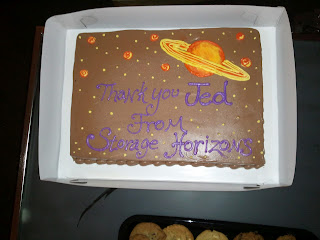Friday (August 31) at 0900: Writing Gender Roles in Science Fiction
Panelists listed in program: Joan D. Vinge, Julia Rios, Catherine Lundoff, Victor Raymond, Anne Lyle (Note: Joan D. Vinge was definitely not in attendance.)
Disclaimer: These are my notes from the panel and my own, later thoughts. I often was unable to attend the entire panel, and also chronically missed panelist introductions. When possible I try to note who said something, but often was unable to. Also, unless something is in double quotes it should be considered a summary and not a direct quotation.
Works in which characters that are outside gender norms but not as a reaction to an oppressive government (incomplete list):
- Diana Comet and Other Improbable Stories – Sandra McDonald
- Bone Dance – Emma Bull
- The Tawny Man trilogy and The Farseer trilogy – Robin Hobb. (Everyone tends to refer to the Fool as male but it clearly is not quite in the binary.)
- The Einstein Intersection – Samuel R. Delaney
- The Female Man – Joanna Russ
- Fly Into Fire – Susan J. Bigelow (Transwoman protagonist)
- Dragonsbane and Sisters of the Raven – Barbara Hambley
George R. R. Martin does a lot of good stuff particularly with his older women – as working within strictures of misogynistic society. Early books at least, Anne Lyle has issues with the later books it sounds like. Goes off the rails bit after the first book.
Writing characters of different genders; do you consciously decide to present them in ways you consider “good”?
Catherine Lundhoff: In sf/f there are very few female werewolves. There are very few middle-aged men already as protagonists, there are even fewer middle-aged women as protagonists. They tend to just be the evil queen.
Anne Lyle: I just write people and see how they turn out.
Mary Robinette Kowal – “Jane Austen with magic.” First book very traditional, second book (Glamour and Glass) has main character after she’s married, in Belgium at the point Napoleon comes out of exile. Goes into a war situation as a married woman who has strict social moors and must break out of it for reasons of plot.
Lois McMaster Bujold – Cordelia, working within the restrictive society to try to open minds while playing by their rules. The Vorkosigan saga “A Civil Campaign” is a comedy of manners set in scifi.
Audience question: Recommend stories that have alien cultures with something beyond the gender binary (e.g. 3 genders, etc)?
Source Decay in Strange Horizons
I asked for examples of transmen in sf/f since there had been several named for transwomen:
- The Courier’s New Bicycle – Kim Westwood
- A Civil Campaign – Lois McMaster Bujold
- Steel Beach – John Varley
- Recognizing Gabe – Alberto Yáñez (Strange Horizons)
- Supervillainz – Alicia Goranson [ETA: Catherine Lundoff tweeted this one to me today]
Also, it was noted that transmen (and transwomen) are much more common in erotica than in sf/f. I very nearly stumped the panel with this question.
#
I thought this was a solid panel with good discussion, though I missed a significant portion of it. I actually ended up buying a copy of Catherine Lundoff’s Silver Moon in part because of this panel. There really aren’t older female protagonists very often, and I’m charmed by the idea of one being a werewolf.
The reason I asked the question about characters who are transmen is I’ve noticed generally that transwomen seem to be a bit more visible in pop culture and sf/f. Sometimes it’s very negative (eg: news stories about a transwoman being attacked are far more common than those about transmen) and on the more positive side I’ve seen more transwomen activists than transmen. When there are trans characters in the genres I read (and this happens rarely as it is) they’re almost always transwomen.
I wonder if this is partially because transwomen are to a certain extent more transgressive than transmen. From the viewpoint of a society where being white and male is still the “norm” it must seem more transgressive for a man to “wish to be” a woman than for a women to “wish to be” a man, because it’s a movement counter to the center of power.
Transmen also seem to have better luck “flying under the radar” than transwomen. (Transmen – nature’s ninja?) I wonder if this is connected to the way, say, drag queens tend to be far more culturally visible than drag kings. There’s the titillation factor, of course. But there’s also the fact that if you see someone your brain identifies as female, if they’re dressed in male clothes it doesn’t tend to really register in the same way someone who may be male in female clothes does. Women regularly wear men’s clothes, or clothes that are styled after those men wear.
Of course, this is on my mind because I’ve got a short story in which the main character is a transman. (And the plot for a novel as well, yikes.) Here’s hoping I can find a magazine that’ll want it at some point…
Anyway, I’m hoping we generally see more diversity in characters in the future, and not just in regards to gender. The fact that people are having conversations about this is definitely a step in the right direction. And of course, with more e-publishing and small presses springing up like wildflowers, I’m hoping to see more diversity as well.
ETA: Catherine Lundoff has a more complete reading list from the panel at her livejournal.
